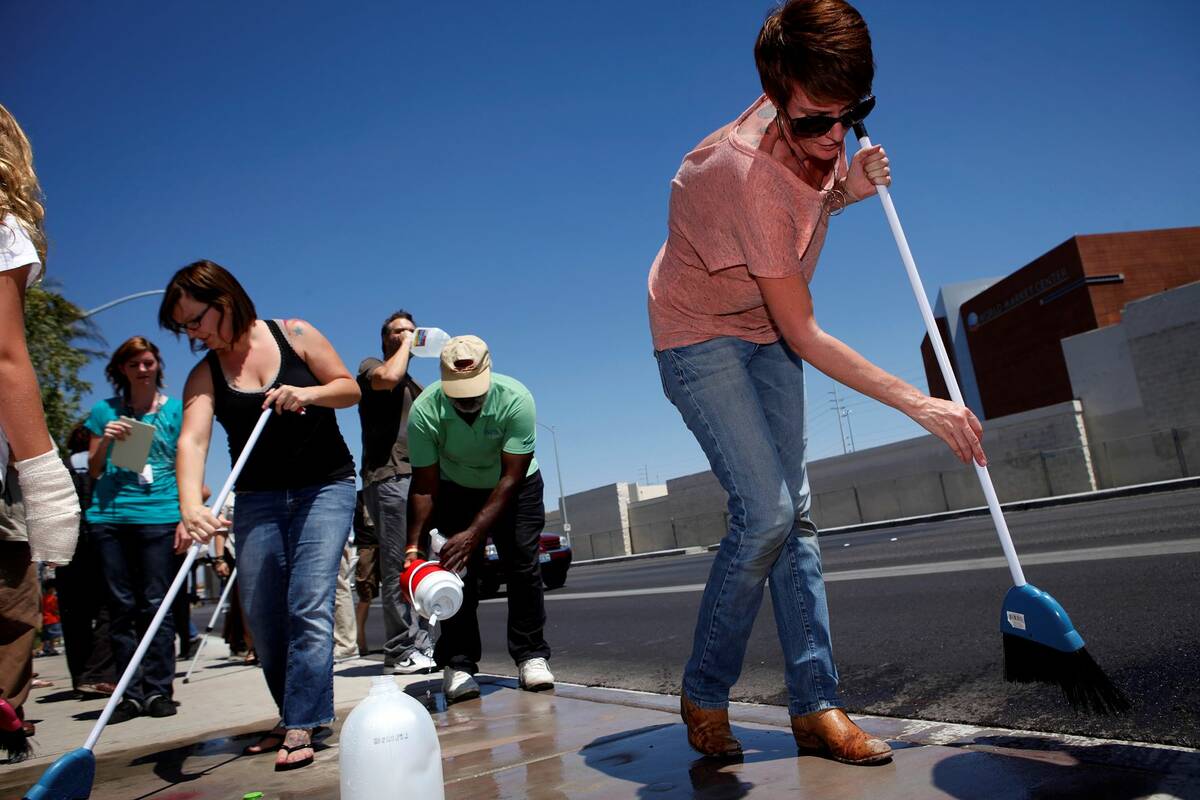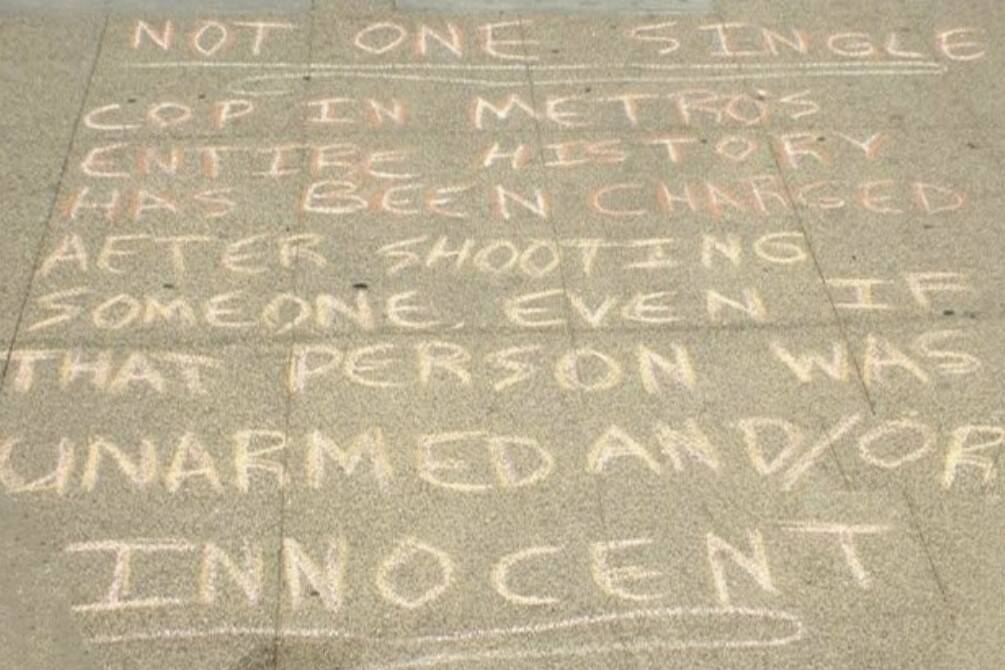Sidewalk chalkers can sue Las Vegas officer who arrested them, court rules
A Las Vegas officer can be sued for arresting protesters who used chalk to write anti-police messages on sidewalks, a federal appeals court ruled Tuesday.
The opinion, authored by Judge Clifford Wallace of the 9th U.S. Circuit Court of Appeals, said Metropolitan Police Department Detective Christopher Tucker violated the First Amendment rights of Brian Ballentine, Catalino Dazo and Kelly Patterson when he arrested them in August 2013 after they participated in chalking protests in front of Metro headquarters and the Regional Justice Center.
“Plaintiffs presented objective evidence showing that they were arrested while others who chalked and did not engage in anti-police speech were not arrested,” the opinion states.
Wallace also wrote that a U.S. District Court judge erred by granting the detective qualified immunity. A three-judge panel of the appeals court, which is based in San Francisco, determined that qualified immunity did not apply to the case because it was “clearly established” in 2013 that the arrests violated the plaintiffs’ First Amendment rights, even though the arrests were “supported by probable cause.”
Maggie McLetchie, one of the plaintiffs’ attorneys, said Wednesday that the opinion “affirms common sense.”
“I think if you ask anybody, a reasonable officer should know that they can’t arrest people for sidewalk chalking because of the content of the messages,” McLetchie said.
Metro did not immediately respond to a request for comment on Wednesday.
Tuesday’s opinion means the case may proceed to trial in U.S. District Court, McLetchie said. The plaintiffs, who also are represented by the MacArthur Justice Center, first filed the lawsuit in September 2014.
The plaintiffs are members of a local activist group known as the Sunset Activist Collective and are associated with the activist group CopBlock, court records show. They had participated in protests since 2011 by using chalk to write anti-police messages on Las Vegas sidewalks.
In 2013, the city of Las Vegas indicated to Metro that it was “willing to prosecute” if an officer saw someone chalking sidewalks, due to the increased activity and cleaning costs, according to court records.
On June 8, 2013, the plaintiffs were issued graffiti citations for chalking sidewalks in front of Metro headquarters, the opinion said. Tucker then was assigned to investigate the citations.
Ten days later, the plaintiffs chalked messages in front of the courthouse after appearing for a hearing on the citations, which were not prosecuted. The messages included graphic language and referred to the cops as “pigs,” court records show.
Tucker later issued arrest warrants for the plaintiffs related to the chalking in front of the courthouse and chalking on July 13, 2013, in front of Metro headquarters.
Ballentine, Dazo and Patterson were arrested at a planned protest on Aug. 10, 2013, on suspicion of conspiracy to commit placing graffiti and placing graffiti on or otherwise defacing property, the opinion said.
“The Clark County District Attorney ultimately dropped all charges because officers that were present at the courthouse did not tell Plaintiffs to stop, while some officers also possibly told Plaintiffs where they could and could not chalk, and the district attorney concluded prosecutions were not a good use of limited resources,” Wallace wrote in the opinion.
The judges found that a “reasonable jury” could find that the anti-police messages were a “substantial or motivating factor” for the arrests.
“The only time they’ve arrested anyone for sidewalk chalking is when there are critical messages to the police being chalked,” McLetchie said on Wednesday.
Contact Katelyn Newberg at knewberg@reviewjournal.com or 702-383-0240. Follow @k_newberg on Twitter.



















